From Oaxaca to Oakland, Proyecto Diaz Coffee Champions Small Farmers and a Family Legacy
Selina Knowles, Communications Coordinator
February 1, 2024
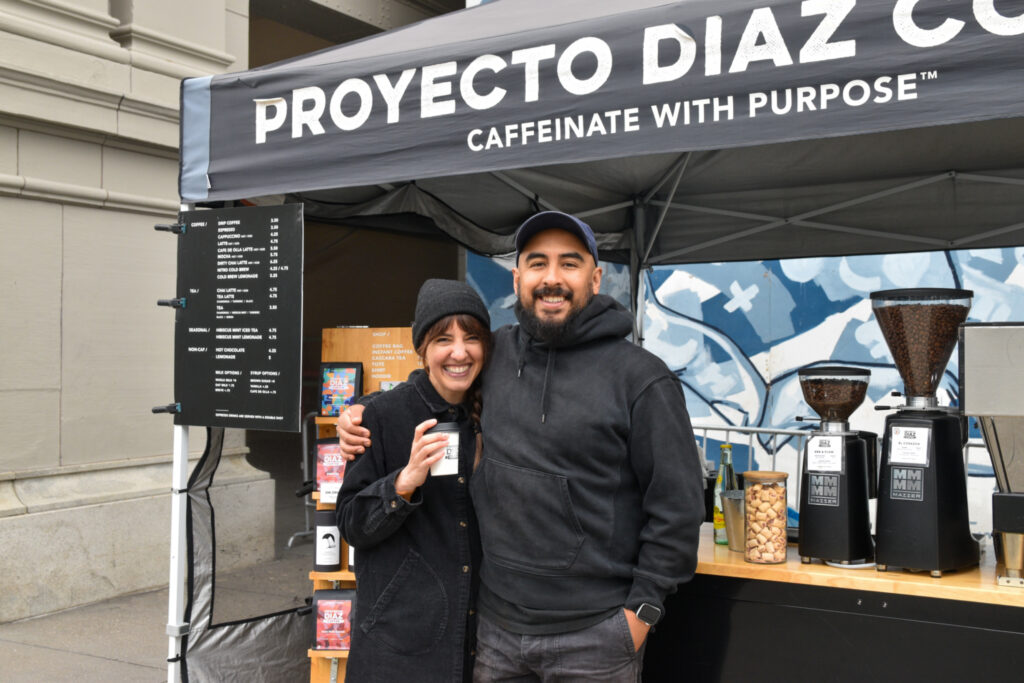
“There are not many roasteries that have a first-hand account of what the family farmers are going through to produce coffee,” says Fernando Diaz, co-owner of Proyecto Diaz Coffee, an Oakland-based, family-run roastery. “And then be able to communicate that, authentically tell their story, and teach others about the work and tenacity that goes into producing that nice cup of coffee that you’re drinking in the morning.”
While sipping on his own freshly brewed coffee in the newly opened Proyecto Diaz Coffee cafe in West Oakland, Fernando describes the growing and harvesting of coffee that he witnessed on his recent trip to his family’s farm in Oaxaca. He also reflects on his constantly growing appreciation for farmers, both abroad and at the Ferry Plaza Farmers Market, where Proyecto Diaz has been keeping shoppers “caffeinated with purpose” since 2020.
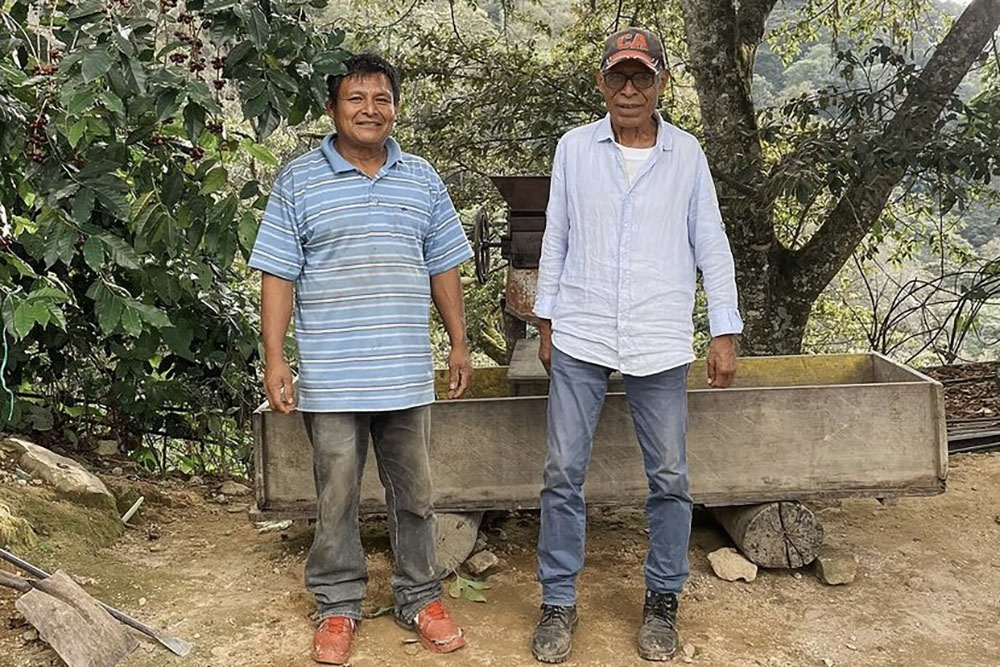
Building Trust Between Neighboring Farms in Oaxaca
Fernando grew up hearing about his grandfather Juan Leovigildo Diaz’s coffee farm in Oaxaca, Mexico, started by Fernando’s great-great-grandfather in the early 1900s. This living piece of family history is partly what inspired him to found Proyecto Diaz Coffee with his wife and business partner, Hannah-Love Diaz and his father, Genaro, as head roaster, in 2014. He visits the family farm regularly, most recently last fall.
Along with roasting beans from the Diaz family farm, El Carmen, Proyecto Diaz also sources from neighboring farms, which has required consistent relationship building. Most coffee farmers in remote areas, such as the Sierras of Oaxaca, rely on middlemen to buy, transport, and market their coffee. Coffee farmers expect these bigger multinational corporations to pay some amount of money before harvest and the rest after.
“We enter more of a long-term commitment,” says Fernando. “We don’t have that cash flow and fluidity that a lot of these huge companies have.” As a small operation, Proyecto Diaz cannot afford to pay the lump sum up front, but they contribute a premium on top of production cost at the end of the transaction.
He says that the producers Proyecto Diaz Coffee works with were understandably skeptical at first, but they have since found the relationship beneficial. The Diaz family commits to paying their direct trade partners above the commodity market value set by Coffee C Futures contracts. They also prioritize reordering from those same farmers to bring them consistent business and income.
Proyecto Diaz Coffee primarily sources from three farms in the mountainous region of Sierra Sur, about a six to eight hour drive from Oaxaca City. Their coffee beans come from Fernando’s grandfather’s farm, El Carmen, and two neighboring farms, whose names you may recognize on Proyecto Diaz Coffee’s bags.
Saul Cortez, a fourth cousin of Fernando’s, owns and operates El Porvenir. Fernando explains that Saul owns a plot of what used to be a larger piece of land that was owned by Fernando’s great-great-great uncle. Bernardino Martinez and Raymundo Pinacho run the other neighboring farm, Ozolotepec. The Diaz family has been working with the producer pair for a few years now.
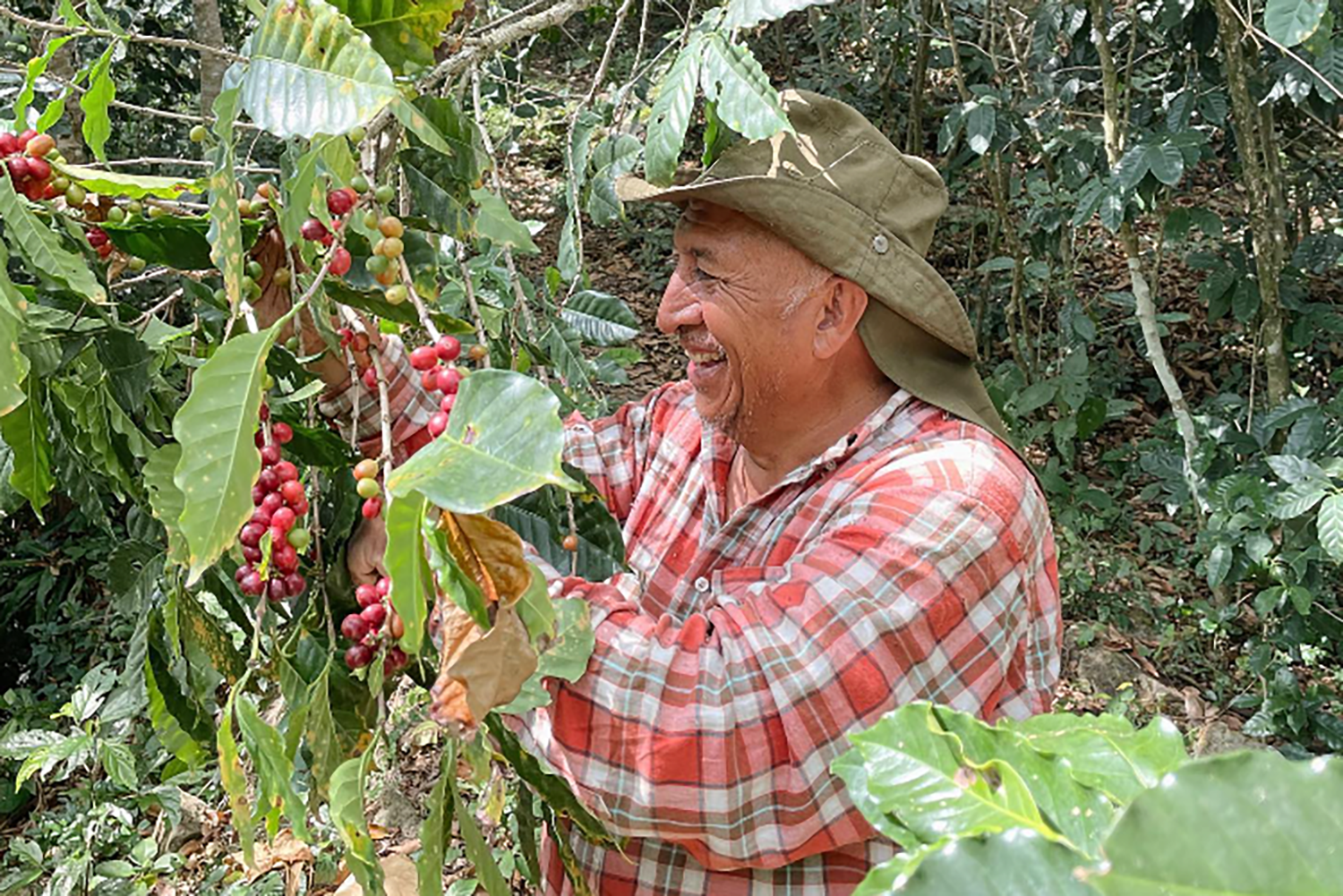
From Coffee Cherry Buds to Harvested Beans
The lengthy coffee growing, harvesting, and processing requires plenty of careful attention, patience, and labor. On the farms, the coffee trees typically start to flower in May, signaling the oncoming fruit. “During that time you also start getting your rains, and hopefully you don’t have very heavy rains,” says Fernando. “Otherwise the flowers fall off, and there goes whatever fruit was going to bud.”
During the summer, it’s time for the cleaning phase. In the Sierras, the coffee is shade-grown. This method has long been practiced in Mexico and is known for its ecological benefits. It requires producers to prune overgrown trees as necessary through August to let some sunlight in. Then, through October, they remove any vines or plants competing for resources and clear brush to make way for pickers during the upcoming harvest season.
In late November, when the coffee cherries start to mature, it’s time for the first pick. “Everything’s picked by hand, and it starts warming up the cherries,” explains Fernando. “It helps jumpstart the ripening process.” Finally, in December the big harvest begins. “Every farm is lit up. Think of it like a Christmas tree. There’s a bunch of red cherries everywhere.”
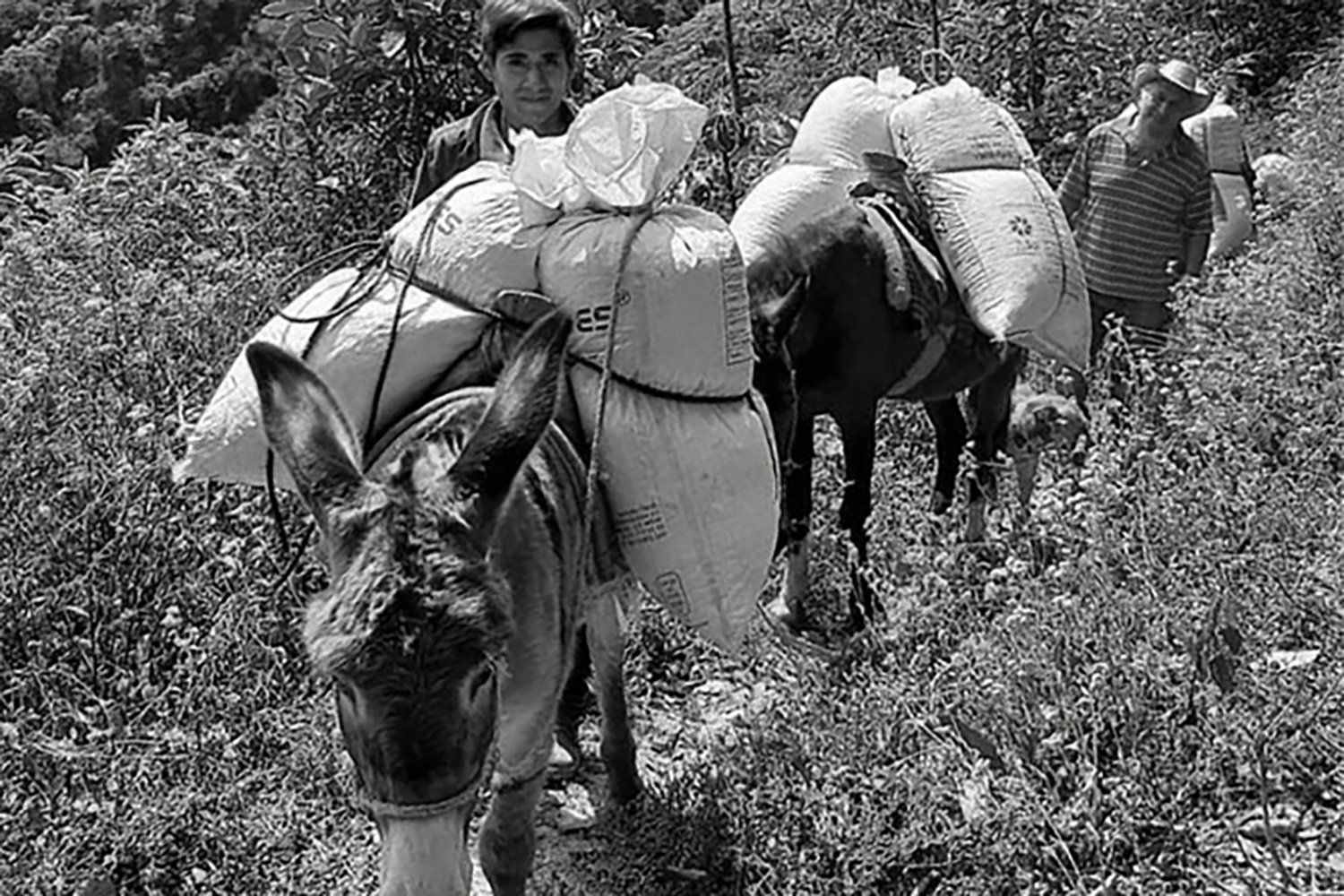
Transporting Beans from the Farm to the Roastery
Once the beans are harvested, the strenuous journey to get them back to the city begins. Niceforo and Anselmo Díaz, Fernando’s uncles, first park their vehicle in the nearest village before hiking to the farm on foot. They bring the green coffee beans off the farm by animal, such as a horse, donkey, or mule, says Fernando. From El Carmen, it’s roughly a five-mile walk that takes two to three hours.
Each harvest requires several trips. “For this crop, we’ll hopefully be able to bring it down to 40 animals carrying the 46 kilograms (about 90 pounds) sacks,” says Fernando. “We have two animals, and each animal can carry about two of those sacks. So it’s about 10 trips overall.” Rather than make 10 consecutive trips, his family members may periodically come and go from the farm throughout the harvest season, bringing supplies on the way and leaving with a load of beans.
From there, they drive back six to eight hours to Oaxaca City, where the final milling process happens in early spring. Once the parchment-like husk of the coffee cherry is removed and the beans are polished, the coffee gets packed into bags for export. Finally, in early summer, it reaches Proyecto Diaz’s roastery in Oakland, over a year after the initial flowering and six months after the harvest.
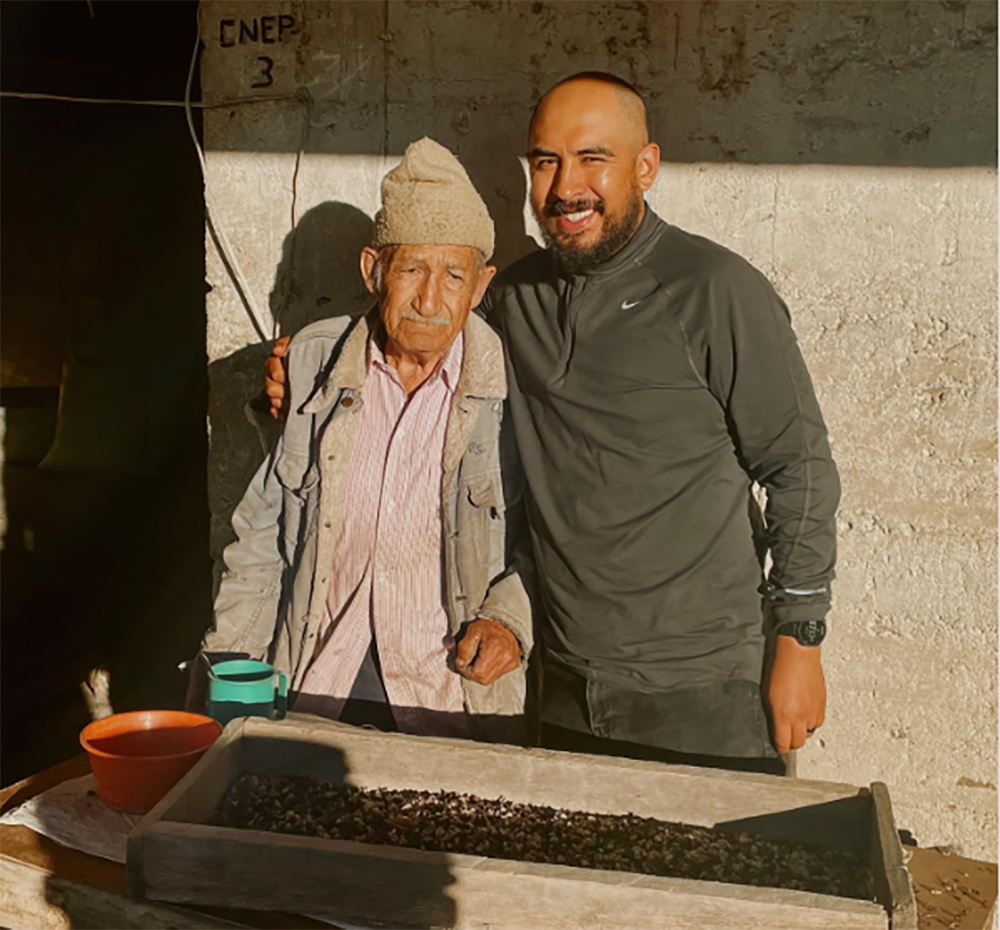
Strengthening Farmer and Community Resiliency
This time- and labor-intensive process deepens Fernando’s appreciation for small farmers. “Coffee’s given me the ability to really see and appreciate farming as a general industry, what goes into it and the consistent care that someone has to have in order to make sure that they produce their crop.” To Fernando, Proyecto Diaz Coffee’s role is to be a reliable customer for the farmers he works with, like Saul, Bernardino, and Raymundo. The fruits of their labor have been recognized as being on the cutting edge of Bay Area coffee.
From the beginning, Fernando made contributing to farmers’ resiliency central to the mission of Proyecto Diaz Coffee, setting aside funds each quarter for community projects in a farm fund. Previously, the fund has been used for food drives and shelter rebuilding following an earthquake. They also use this fund to invest in El Carmen, to keep the family farm and coffee legacy thriving for generations to come.
“A lot of coffee farmers are truly resilient. You see it with the producers at the Ferry Plaza Farmers Market, too,” Fernando reflects. “They can’t rely on one crop, they go with the seasons, and if there’s something that happens, they figure out how to adapt. They get back up and they’re out there again the next season and the next season, and they keep going. So coffee has given me a deeper appreciation for farmers overall.”
Starting February 3, Proyecto Diaz Coffee is back at the Ferry Plaza Farmers Market on Saturdays, Tuesdays, and Thursdays. You can also support Proyecto Diaz Coffee at their new cafe in Oakland at 1416 20th Street.
